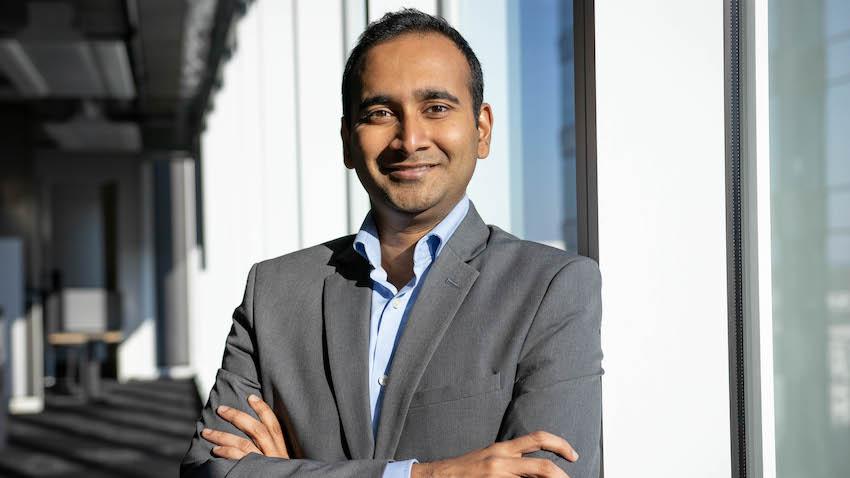
Faculty Receives NSF CAREER Award to Detect and Counter Social Media Misinformation
Online misinformation makes social media platforms both unpleasant and unsafe for users. Now, with a National Science Foundation (NSF) CAREER award in hand, a Georgia Tech researcher is poised to help social media platforms and users alike better detect misinformation and curb its spread.
Srijan Kumar, an assistant professor in the School of Computational Science and Engineering (CSE), received the prestigious award for early-career faculty to advance his research interests in information security and web integrity.
Kumar’s NSF CAREER award will fund research to invent methods that both detect and counter misinformation on social media platforms. Not only is this award an achievement for Kumar, but it could also be a victory for internet users who face the perils of online misinformation.
“This award will enable research that has the potential to improve how lay social media users interact with and counteract online misinformation,” said Kumar. “The work will boost information literacy in society and has the potential to reduce the number of people exposed to misinformation.”
Kumar points out that addressing misinformation at scale remains a pressing challenge, especially for platforms that use professional fact-checkers and moderators. According to one of Kumar’s previous studies, 96% of counter-responses to misinformation originated from lay users rather than fact-checkers.
Realizing the potential for internet users themselves to regulate misleading content on platforms they frequently visit, Kumar’s NSF CAREER award proposal presents a three-pronged approach to empower people with the ability to detect and counter misinformation.
First, Kumar’s research group will develop new, robust detection models that identify potentially non-credible information by leveraging user-generated responses in social media posts. The team will employ signed graph neural network models in this endeavor to better detect misinformation on social media platforms.
Next, Kumar’s team will create methods to enhance model robustness against adversarial behavior.
Kumar explained in his CAREER award proposal that one challenge in detecting and correcting misinformation is social media adversaries use many accounts to inject fake responses to a post. This behavior can fool existing detection models into classifying misinformation as true and vice versa, hence the need for newer, stronger tools.
Focusing on robustness is a measure to prevent existing and future models from falling for adversarial tactics.
Finally, the team will design a counter-response generation tool that can help internet users effectively respond to misinformation. This tool will incorporate existing fact-checking resources and best practices to suggest possible responses to misleading social media posts.
Users by themselves do not counter misinformation efficiently. Kumar found in past research that two-thirds of counter responses are uncivil, rude, and unsupported by evidence. This tool would help users counter misinformation in ways that are effective, not just efficient.
The goal is to boost information literacy in society and reduce the number of people exposed to harmful misinformation. Kumar’s tools help users on social media reach that goal by detecting misinformation and generate counter-responses that are also robust against adversarial tactics.
For Kumar himself though, the NSF CAREER award is another addition to the rising faculty’s growing list of accolades. In March, the National Academy of Sciences named Kumar a Kavli Fellow, his second in back-to-back years.
For his recent research endeavors, the Association for the Advancement of Artificial Intelligence invited Kumar to present this year as part of its 37th annual conference and New Faculty Highlights program.
Last year, Forbes named Kumar in their 30 under 30 list of 2022.
“I am honored to receive this award from the National Science Foundation,” Kumar said. “This award is made possible due to the support of my students and collaborators, and it builds on work that has previously been funded by NSF, DARPA (Defense Advanced Research Projects Activity), Centers for Disease Control and Prevention, and industries.”
As computing revolutionizes research in science and engineering disciplines and drives industry innovation, Georgia Tech leads the way, ranking as a top-tier destination for undergraduate computer science (CS) education. Read more about the college's commitment:… https://t.co/9e5udNwuuD pic.twitter.com/MZ6KU9gpF3
— Georgia Tech Computing (@gtcomputing) September 24, 2024


